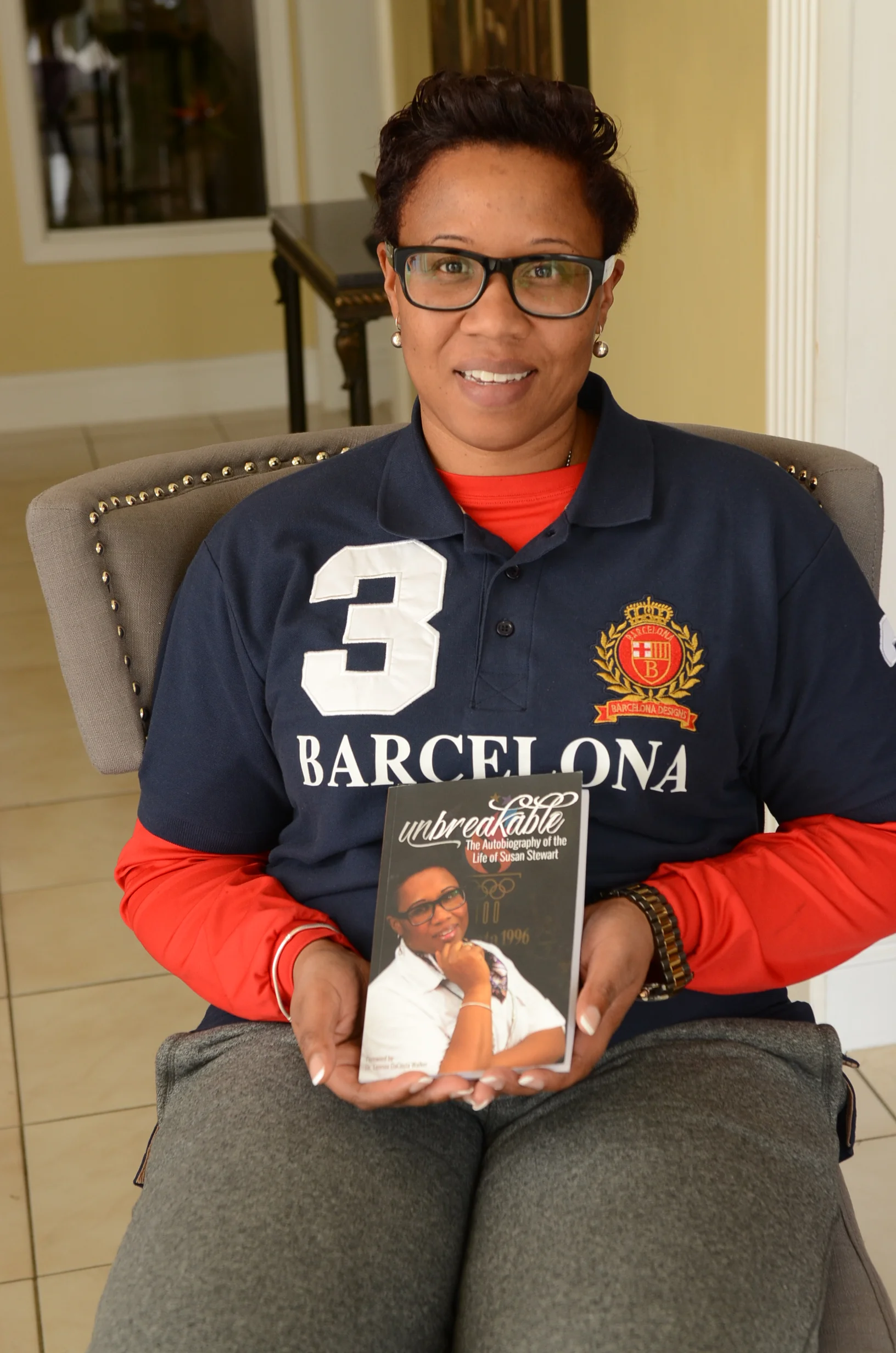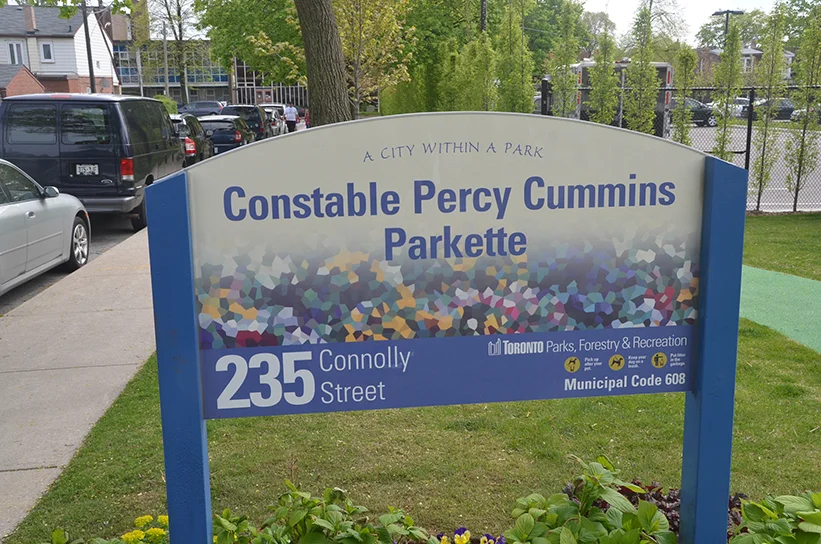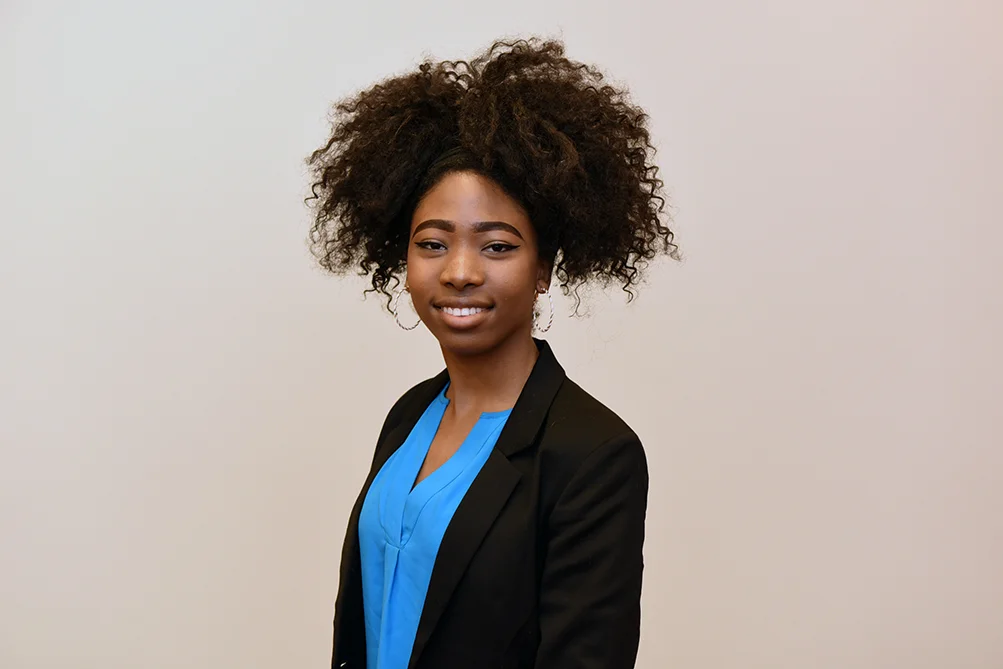Blacks have led anti-racism fight in this city
In the inaugural lecture bearing her name, Ryerson University social work professor Dr. Akua Benjamin addressed the activism of Anti-Black racism and resistance in the city in the last five decades and made it clear that Blacks have been at the forefront of policy changes in Toronto in that period.
Noting that Anti-Black racism is a resistive declaration and action against systemic structural and other forms of racism against particularly Black subjects, she said that the declaration recognizes that there has been a historic and present-day set of policies and practices that continue to perpetuate the marginality of Blacks in city and other places across Canada.
Benjamin also told the crowded lecture hall audience that included several advocates for change, that the concept of Anti-Black racism didn’t begin with Stephen Lewis and his recommendations in the aftermath of the Yonge St. riot in 1992.
“It came out of the activism and it involved working for change with police and the criminal justice system,” she pointed out. “Yes, we have been in the forefront of changes in policy in this city. We have contributed to the development of the citizens’ complaint bureau against police violence. We have contributed to the development of the SIU (Special Investigations Unit) and today this unit is one that we are not proud of at all.
“We have been involved in the development of equity policies, anti-racism training, the call for fair employment practices and we have advocated against immigration policies. In addition, we struggled for the development of the human rights office and employment equity legislation. All of these and many more changes are part and parcel of the activist legacy of Anti-Black racism in Toronto over the past 50 years.”
The lecture was part of the five-year Akua Benjamin Legacy Project that’s housed in Ryerson’s School of Social Work.
“This legacy project intends to change public knowledge and public discourse to include our activism and the changes that have occurred as a result of our activism,” she said. “Our children and youth must have a discourse and an appreciation for the activism of those who have contributed to effective changes to our community and society…An important part of the legacy is valuing our past. There is nothing to hide our head about, nothing to be ashamed of in terms of our past.
“Through this project, we are going to value ourselves and our community. We don’t want to be the problem people as society often sees us depicted on TV after another shooting of one of us. That’s not our image and that’s not what we are all about. We are about building change. Our contributions through our activism must find a place and space particularly among our youth and the next generation. Remember, this is not about Akua Benjamin. It’s about a legacy of activism. We are the charges in this particular place and time that must carry forward that resistance that is in our DNA from the time we crossed the Middle Passage until we are here today.”
Starting her academic career in Ryerson University’s School of Social Work 28 years ago, Benjamin has played a pivotal role in shaping the school’s anti-oppressive, social justice and social transformation orientation.
She served as the school’s first director from 2003 to 2008, making her the first Black person to hold the position.
“We have a long way to go, but we are on the path of change in our academic pursuits of teaching beyond Western canons, beyond positivist epistemologies and beyond globalization and neo-liberal democratic policies and practices,” Benjamin, who was born in Laventille, Trinidad to Antiguan parents, said.
“We at the school understand, teach, practice and tackle difficult tasks of social transformation and we understand that to undertake this work includes activism which sometimes carries with it this baggage of being a dirty word. But we know we cannot transform policies and practice without being active agents in the struggle for change. My school is therefore a hub of activism even as we carry out and carry forward our traditional roles as academics.”
Migrating to Canada in 1969 at the height of the civil rights movement in North America provided the impetus for Benjamin to pursue a professional and academic discipline where she could be at the forefront of improving the quality of life and subjective well-being of others.
The Legacy Project highlights the work of six deceased community activists.
They are former Dominica Prime Minister Rosie Douglas, Marlene Green, Dudley Laws, Charles Roach and husband and wife Lennie and Gwen Johnston.
“Their work is a testimony to the indomitable resistance against Anti-Black racism in its many formations,” added Benjamin, a founding member of the Coalition of Visible Minority Women and the Black Action Defence Committee (BADC) who pursued sociology studies at York University and received her Master’s and PhD in social work from the University of Toronto.
Born into a wealthy Dominican family, Douglas’ political consciousness was aroused after he arrived in Canada in the 1960s and attended a lecture by the late Dr. Martin Luther King Jr. at the University of Toronto.
Coming to study agriculture, he switched to political science, became the leader of the Sir George Williams Progressive Conservative Student Organization in 1964 and counted former Prime Minister John Diefenbaker as a close friend. Douglas, however, left the Conservatives when its national student leader Joe Clark refused to address racism on a national level.
One of the leaders of the Sir George Williams University (now Concordia University) two-week sit-in, Douglas served 18 months of a two-year sentence and was deported in 1975. The militant Black Power leader went on to become Dominica’s Prime Minister before succumbing to a heart attack in October 2000 just 14 days before his 59th birthday.
Green, who was also born in Dominica, founded the Black Education Project in the late 1960s which was a lightning rod for Black activism. The co-writer of the first report on race relations in the educational system and major supporter of African National Congress (ANC) refugees and liberation fighters in Tanzania and Zambia passed away in 2002 at age 62.
Considered the powerful militant voice of Toronto’s African-Canadian community for the past four decades prior to his death at age 74 five years ago, Laws left an uncompromising legacy of activism. He led police protests and vigorously advocated on behalf of youth and the disenfranchised
Though he was associated with many organizations, some of which he helped establish, BADC was very close to his heart. He was among 17 community activists that started the association in 1988 in response to the police shooting of Lester Donaldson.
Roach, who delivered the eulogy of Laws who he met in 1968 at the defunct United Negro Improvement Association, died in October 2012 at age 79. He was a staff lawyer for the City of Toronto before opening his own legal practice 48 years ago. His clients included members of the Black Panther Party seeking refuge in Canada from prosecution in the United States and domestic workers facing deportation.
A Canadian resident for 57 years, Roach died without becoming a Canadian citizen because of his refusal to pledge allegiance to the Queen which is a requirement for all citizenship candidates over the age of 14.
The Johnston’s co-owned Third World Books & Crafts on Bathurst that was a popular meeting place for Blacks from Canada and around the world. Lennie Johnston died in 1998 at age 79 and his widow passed away 11 years later.






